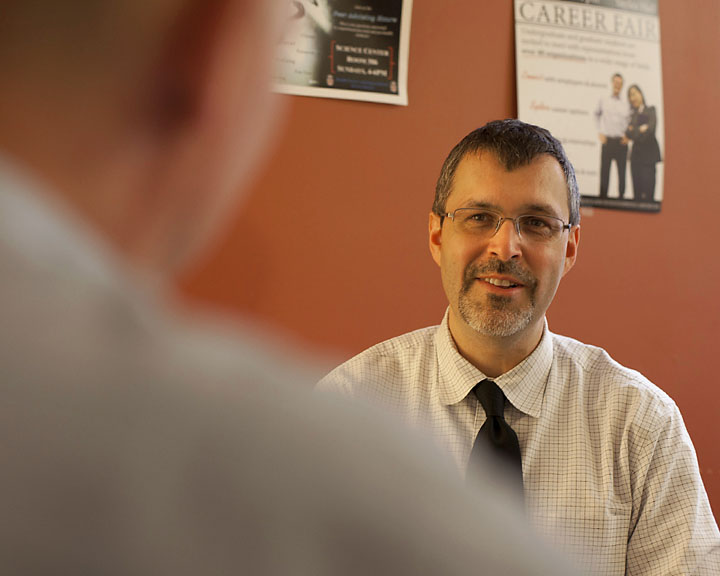With Commencement practically around the corner, you must be getting a pretty good idea of seniors’ plans for next year. How is the job market, and where will Brown students be heading next year?
If history is any guide, the majority of seniors will go directly into employment. About 25 percent will head for graduate or professional school. Of course, all of this is just the beginning for these graduates. Many of those who start off working eventually will attend graduate or professional school, and many will change careers throughout their lifetimes.

What kinds of opportunities are students pursuing, and what has the University done to help?
We think there has been an uptick in recruiting among financial firms and tech companies, and there are many great opportunities for graduating seniors in these areas as the economy begins to improve. Also, nearly half of our graduates who go directly into employment typically do so in the nonprofit sector. This year, we have added staff expertise in this area and the Career Development Center has increased its outreach to nonprofit employers, as well as to employers in other fields.
What other new initiatives have you undertaken to help students?
I am most excited about our new internship initiatives. In conjunction with Alumni Relations, we have piloted a program for paid internships offered by alumni in Boston. Also, through the Careers in the Common Good program, we have developed a new initiative for nonprofit internships offered by alumni this summer in New York City. This year we have also been offering evening and weekend advising for students. As I already mentioned, we have strengthened our advising for nonprofit careers, but we have also been able to bring more expertise under our roof in other areas as well. For example, health and law advising, which had been housed only in the Office of the Dean of the College, is now a joint function of the dean’s office and the Career Development Center.
With an economy that still appears to be in recovery mode, are some students adjusting career plans and expectations?
Despite the tough economic times, our data indicate that Brown students have continued to be successful in the job market. This is, I think, a testament to the strength of a Brown education. Nevertheless, we understand that students are anxious about the job market, and they will have to put some effort into landing that first job. Overall, however I would encourage students to continue pursuing the jobs that interest them and, as always, to be realistic.
Can you articulate how a Brown education prepares students for today’s working world?
I know this is a cliché, but the only constant in the work force today and going forward is change. That is why Brown's approach is so relevant — the most successful workers in the future will be adaptable, possess broad knowledge and skills, and be able to solve complex problems. Students have a special opportunity to develop these characteristics through Brown’s self-directed ethos and interdisciplinary curriculum.
